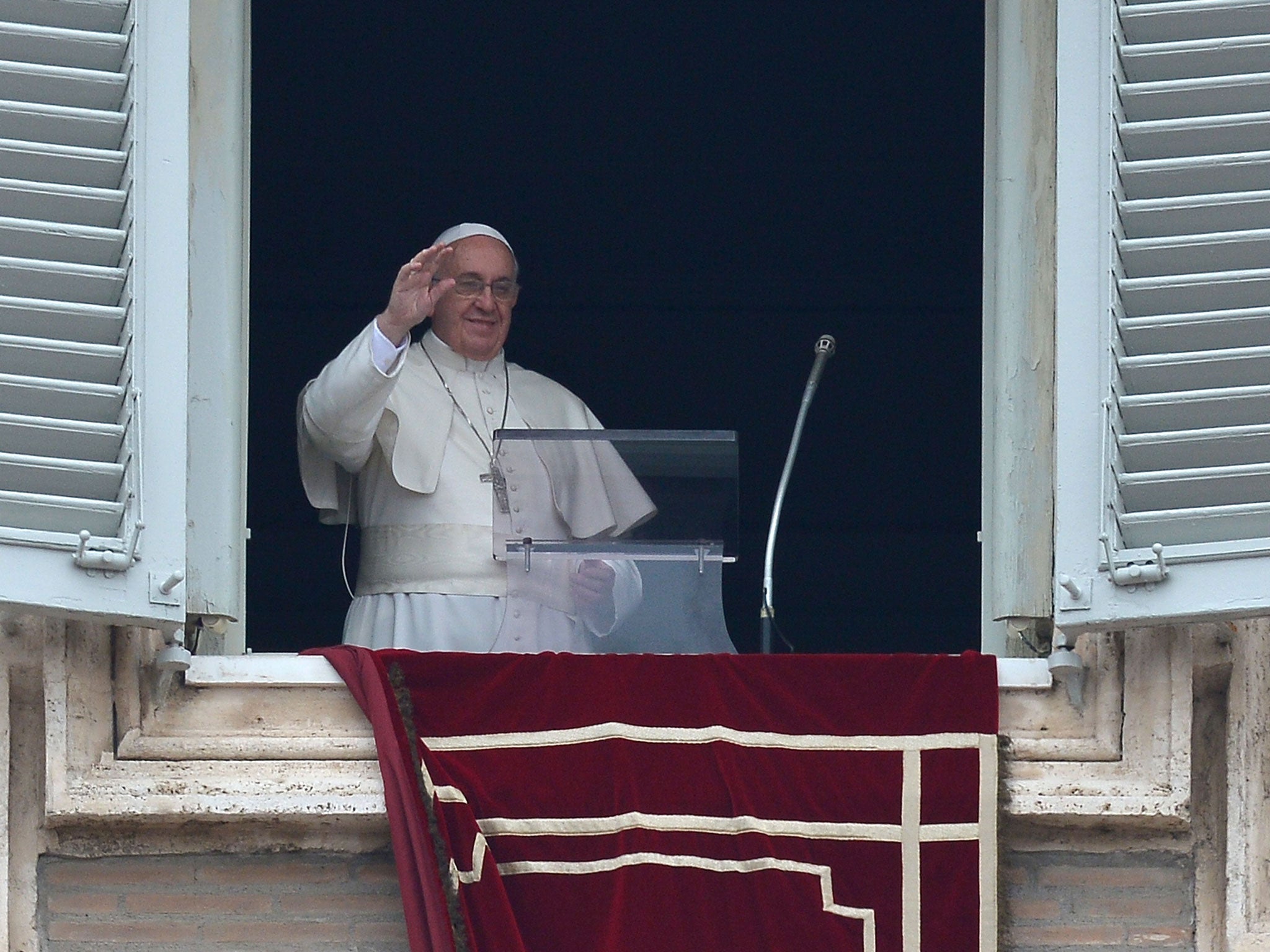Pope Francis names woman molested by priest among first members of sex abuse commission
Church group to help Catholic Church fight clerical sex abuse scandals

Your support helps us to tell the story
From reproductive rights to climate change to Big Tech, The Independent is on the ground when the story is developing. Whether it's investigating the financials of Elon Musk's pro-Trump PAC or producing our latest documentary, 'The A Word', which shines a light on the American women fighting for reproductive rights, we know how important it is to parse out the facts from the messaging.
At such a critical moment in US history, we need reporters on the ground. Your donation allows us to keep sending journalists to speak to both sides of the story.
The Independent is trusted by Americans across the entire political spectrum. And unlike many other quality news outlets, we choose not to lock Americans out of our reporting and analysis with paywalls. We believe quality journalism should be available to everyone, paid for by those who can afford it.
Your support makes all the difference.Pope Francis has appointed a former child victim as one of the first members of a new commission to help the Catholic Church put an end to clerical sexual abuse.
The Vatican has been criticised in recent months for not keeping enough of a focus on the abuse of children by priests, and the group has been set up to show willingness to receive input on the issue beyond church officials.
Announcing the first eight members of the commission yesterday, Pope Francis said the church “must hold the protection of minors amongst her highest priorities”.
Four men and four women have been named, including the campaigner Marie Collins. She was molested by a priest as a child in Ireland in the 1960s, and has worked for protection and justice on behalf of those impacted by clerical paedophilia.
Also named was Cardinal Sean O'Malley, one of Francis' key advisers and the archbishop of Boston, where the US scandal erupted in 2002.
Two other members are professors at Rome's Jesuit Pontifical Gregorian University, which in 2012 hosted a seminar for bishops from around the world to educate them on best practices to protect children. Several participants from that conference are now founding members of Francis' commission, including Baroness Sheila Hollins, a British psychiatrist.
The Vatican announced in December that Pope Francis would create the commission to advise the church on best policies to protect children, train church personnel and keep abusers out of the clergy. But no details had been released until Saturday and it remains unknown if the commission will deal with the critical issue of disciplining bishops who cover up for abusers.
In a statement, the Vatican hinted that it might, saying the commission would look into both “civil and canonical duties and responsibilities” for church personnel. Canon law does provide for sanctions if a bishop is negligent in carrying out his duties, but such punishments have never been imposed on a bishop for failing to report a paedophile priest to police.
Speaking about her own experiences at the 2012 seminar, Ms Collins told bishops of the hospitalizations, anxiety and depression she endured after Irish church authorities didn't believe her when she reported her attacker, and then blamed her for the assault.
“I was treated as someone with an agenda against the church, the police investigation was obstructed and the laity misled. I was distraught,” she said.
Ms Collins’ appointment to the panel was hailed by Dublin Archbishop Diarmuid Martin, who has clashed both with the Vatican and his fellow bishops in demanding greater accountability and honesty about abuse. Snap, the main US victim's group, also praised her inclusion but said the Pope needs to starting oust bishops who are complicit in abuse, not appoint another study panel.
“[Pope Francis] has had more than a year to defrock, demote, discipline or denounce even one of them,” said Snap's outreach director Barbara Dorris. “But, just like his predecessors, he refuses to take this simple but crucial step toward justice, healing and prevention.”
Join our commenting forum
Join thought-provoking conversations, follow other Independent readers and see their replies
Comments